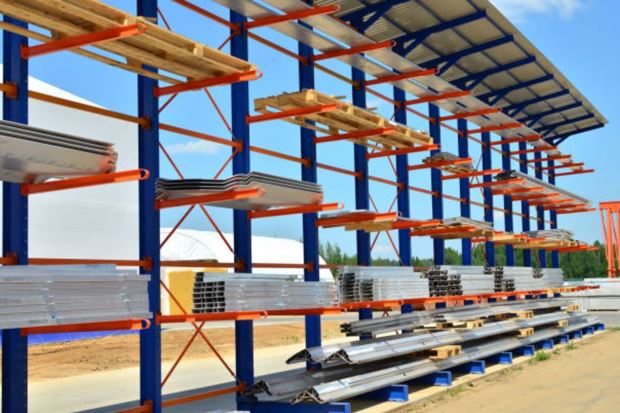Engine Overheating: How a Performance Cooling System Can Prevent It
One of the most critical components of any vehicle, especially performance cars, is the cooling system. Engines generate a tremendous amount of heat during operation, and if that heat isn’t properly managed, it can lead to engine overheating, causing significant damage or even catastrophic failure. To avoid this, many car enthusiasts and high-performance drivers turn to upgraded cooling systems. These performance cooling solutions are designed to handle increased heat loads and ensure that the engine remains at optimal operating temperatures even under the most demanding conditions.
What Causes Engine Overheating?
Engine overheating occurs when the temperature of the engine exceeds its safe operating limits. This can be due to several factors, many of which are related to the efficiency of the cooling system. Some common causes of overheating include:
1. Insufficient Coolant Levels
Coolant is the fluid that circulates through the engine to absorb heat and carry it away to the radiator. If the coolant level is too low, there won’t be enough fluid to adequately cool the engine, leading to overheating. Leaks or poor maintenance can result in low coolant levels.
2. Radiator Malfunction
The radiator is a key component of the cooling system, responsible for dissipating heat from the coolant before it recirculates through the engine. If the radiator is damaged, clogged, or functioning inefficiently, it won’t be able to cool the coolant effectively, increasing the risk of overheating.
3. Faulty Water Pump
The water pump is responsible for circulating coolant throughout the engine. If it fails, coolant won’t flow as it should, and heat will quickly build up. Water pump failure is a common cause of engine overheating.
4. Thermostat Issues
The thermostat regulates the flow of coolant through the engine, ensuring that it only circulates when necessary. If the thermostat is stuck closed, coolant won’t flow, causing the engine to overheat. A malfunctioning thermostat can also reduce cooling system efficiency.
5. Increased Engine Load
High-performance vehicles and those that frequently tow heavy loads or operate in extreme temperatures generate more heat than typical passenger cars. If the stock cooling system isn’t designed to handle these conditions, overheating can occur more frequently.
The Role of a Performance Cooling System
A vehicle’s cooling system consists of several components that work together to regulate engine temperature. These include the radiator, water pump, thermostat, cooling fans, and coolant hoses. A performance cooling system enhances the efficiency of these components, ensuring that heat is removed from the engine as quickly and effectively as possible.
How Performance Cooling Systems Differ
Standard cooling systems are designed to handle the heat output of factory engines under typical driving conditions. However, when you increase engine power through modifications like forced induction (turbocharging or supercharging), higher RPM operation, or heavy-duty use, the stock system may not be able to cope. High-performance cooling systems are specifically engineered to manage the increased thermal load generated by high-powered engines.
Performance cooling systems usually feature:
- Larger or more efficient radiators: These radiators offer increased surface area for heat dissipation, allowing for faster and more effective cooling of the engine’s coolant.
- High-flow water pumps: These pumps circulate coolant at a faster rate, ensuring that heat is removed from the engine more quickly.
- Upgraded cooling fans: More powerful or additional cooling fans can help improve airflow through the radiator, assisting in the heat dissipation process.
- Improved coolant hoses: High-performance hoses are often more resistant to heat and pressure, reducing the risk of failure under extreme conditions.
Benefits of a High-Performance Cooling System
Upgrading to a high-performance cooling system provides a range of benefits that go beyond just preventing overheating. These systems are designed to optimize engine performance, ensuring that the vehicle can run efficiently and reliably even in the most demanding situations.
1. Preventing Overheating
The primary benefit of a performance cooling system is its ability to prevent overheating. By improving the efficiency of heat dissipation, these systems ensure that the engine remains within its optimal operating temperature range. This is particularly important for high-performance vehicles that generate more heat due to increased power output.
2. Increased Engine Longevity
Excessive heat is one of the leading causes of engine wear and tear. When an engine overheats, it can cause components like the head gasket, pistons, and cylinder walls to warp or crack, leading to costly repairs or even total engine failure. A high-performance cooling system can help reduce the risk of these issues by keeping engine temperatures in check, ultimately prolonging the life of the engine.
3. Improved Performance
An engine running at its ideal temperature performs better than one that’s too hot or too cold. When an engine overheats, it can lead to a reduction in power output as the vehicle’s control systems limit performance to prevent damage. A well-regulated cooling system ensures that the engine operates at peak efficiency, allowing for maximum power and throttle response.
4. Enhanced Fuel Efficiency
Engines that run too hot are often less efficient, as excess heat can interfere with the combustion process. By maintaining optimal engine temperatures, a performance cooling system can improve fuel efficiency, making your vehicle more economical to run.
5. Better Resistance to Extreme Conditions
Whether you’re driving in hot climates, towing heavy loads, or pushing your car to its limits on the track, a high-performance cooling system is designed to handle extreme conditions. These systems provide the peace of mind that your engine is protected, even under the most demanding circumstances.
Choosing the Right Performance Cooling System
Before upgrading to a performance cooling system, there are several factors to consider to ensure you choose the right setup for your vehicle and driving needs.
1. Driving Style and Vehicle Use
The first consideration should be how you use your vehicle. If you’re driving a high-performance sports car or frequently push your car to its limits on the track, you’ll benefit the most from a high-performance cooling system. If you’re towing heavy loads or driving in hot climates, an upgraded system is essential for preventing overheating.
2. Component Upgrades
Not all performance cooling systems are created equal, and different setups may be more suited to specific driving needs. A larger radiator, high-flow water pump, or upgraded cooling fans might be enough for some drivers, while others may need a complete overhaul of their cooling system.
3. Compatibility
Ensure that the performance cooling components you choose are compatible with your vehicle. Some parts may require additional modifications or specialized installation, so be sure to consult with a professional if you’re unsure.
4. Budget
Upgrading your vehicle’s cooling system can be a significant investment, so it’s important to balance your budget with your performance goals. While premium components can provide excellent performance gains, there are also more affordable options that can offer noticeable improvements.
Final Thoughts
Engine overheating is a serious issue that can lead to costly repairs and reduced performance. Whether you’re driving a high-powered performance car or simply want to ensure the reliability of your daily driver, upgrading to a performance cooling system is an excellent investment. By improving heat dissipation and keeping engine temperatures in check, a high-performance cooling system can help prevent overheating, increase engine longevity, and enhance overall performance.
Understanding the causes of overheating and the benefits of a performance cooling system is crucial for anyone looking to protect their engine and get the most out of their vehicle. With the right system in place, you can enjoy worry-free driving, even under the most demanding conditions.


